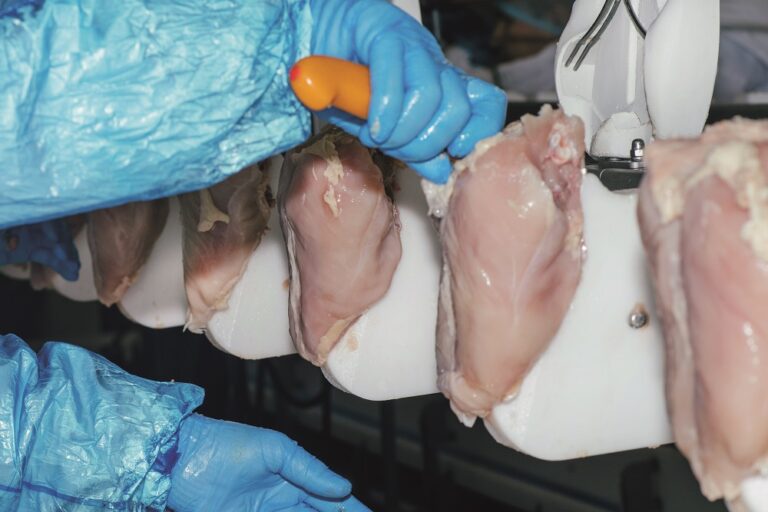Following a rise in cases of Salmonella linked to poultry products imported from Poland, the FSA has issued advice to consumers about safe handling and cooking.
The Food Standards Agency (FSA) along with Food Standards Scotland (FSS) and the UK Health Security Agency (UKHSA) is reminding consumers to take care when handling and cooking poultry products at home, including chilled and frozen chicken and turkey drumsticks, breasts, thighs and chicken pieces. This is because of a recent rise in cases of food poisoning caused by Salmonella Enteritidis linked to poultry products imported from Poland.
The FSA’s advice is to:
- Follow cooking and storage instructions on the product label, including the cooking time and temperature. This is important to ensure that the food is safe when consumed.
- Use or freeze products by their use-by date.
- Wash hands thoroughly after handling raw poultry products.
- Never wash raw poultry products.
- Clean all surfaces and utensils with hot soapy water after contact with raw poultry.
- Only reheat cooked and frozen meat once.
An investigation is ongoing into multiple strains of Salmonella linked to poultry products imported to the UK from Poland. There have been over 200 human cases of salmonellosis caused by specific genetic strains of Salmonella Enteritidis that have been linked to poultry products such as meat and eggs, this year.
The FSA is in discussion with officials in Poland and the EU to ensure all necessary steps are taken to improve the safety of poultry and eggs imported from Poland. The forthcoming import controls on food and feed coming into the UK from the EU will also allow us to check these controls are in place and help to uphold the UK’s high food and feed standards and to protect public health.
Tina Potter, head of incidents at the FSA said: ”Our advice is to always take care when storing, handling, and cooking poultry products such as chicken, turkey and duck to help reduce the risk of food poisoning to you and your family.
“A number of the cases have involved the consumption of eggs produced in Poland and used in meals in restaurants and cafes. We are therefore asking local authorities to remind food businesses about the importance of good hygiene practices.”
Lesley Larkin, Deputy Director for Gastrointestinal infections at UKHSA said: “Salmonella is a type of stomach bug that causes stomach pain, vomiting and diarrhoea. Symptoms typically resolve themselves within a few days, however, they can be more severe with fever and dehydration, especially in young children, those who are pregnant and those with weakened immune systems.
Salmonella can be spread from person to person as well as from food, so anyone affected should follow good hygiene practices, such as washing hands thoroughly after using the bathroom and avoiding handling food for others where possible, if you have symptoms.”


